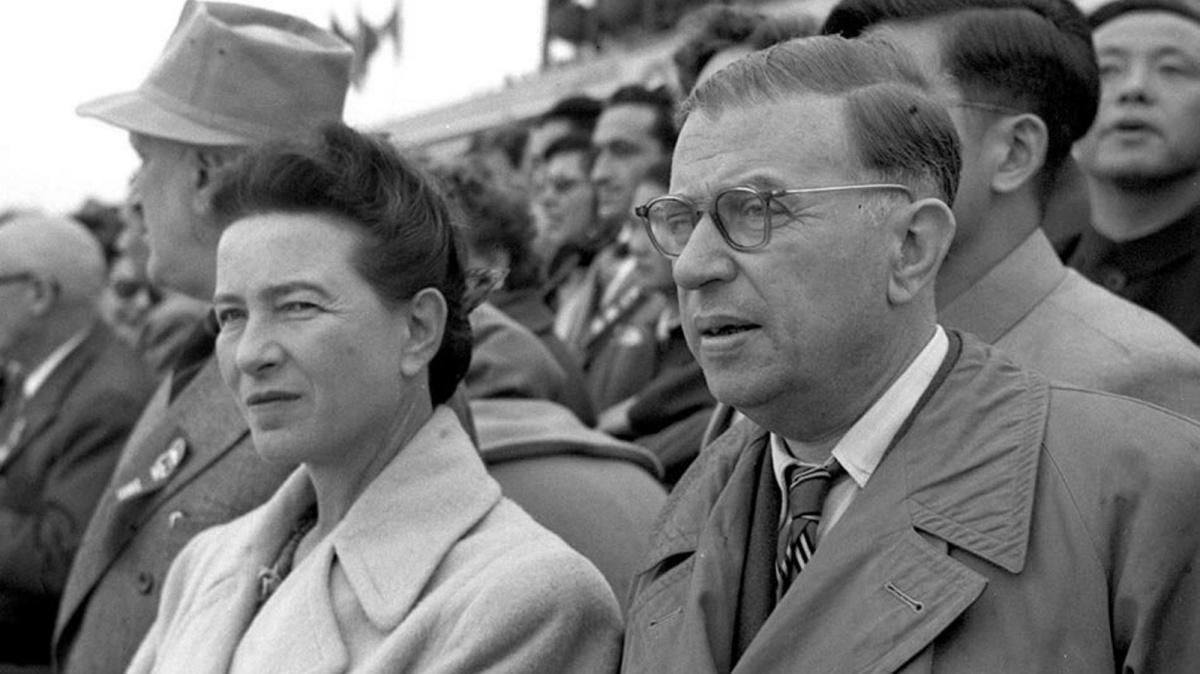Simone de Beauvoir never intended to be remembered merely as “Sartre’s companion.” A towering intellect in her own right, she was a writer, philosopher, and feminist icon who reshaped 20th-century thought about gender, freedom, and responsibility. Her work, particularly The Second Sex, didn’t just critique society—it cracked it open. Born in 1908 in Paris to a bourgeois family, she defied her conservative upbringing by pursuing rigorous philosophical training and entering the elite academic world that had long excluded women. She wasn’t just breaking glass ceilings—she was redesigning the building.
Beauvoir’s early interest in existentialism connected her with Jean-Paul Sartre, forming a legendary intellectual and romantic partnership that defied convention. They created a lifelong open relationship based on honesty, shared projects, and intellectual exchange. But while Sartre focused on abstract freedom, Beauvoir turned her gaze to the lived experience—especially the ways society constructs womanhood. For her, freedom wasn’t just a metaphysical concept; it was a daily struggle, shaped by history, biology, and oppression.
Her landmark book, The Second Sex (1949), declared, “One is not born, but rather becomes, a woman.” With this single line, she reframed gender as something constructed, not natural—a radical notion at the time and still hotly debated today. Beauvoir peeled back the layers of cultural expectation, mythology, and science that had kept women in subordinate roles. The book was banned by the Vatican and dismissed by many male philosophers, but it became a foundational text for second-wave feminism across the globe.
Though often categorized as a philosopher, Beauvoir blurred genre lines. Her novels, such as She Came to Stay and The Mandarins, are fictional laboratories for existential themes like freedom, bad faith, and self-deception. In The Mandarins, which won France’s prestigious Prix Goncourt, she explored postwar intellectual life with a subtle but sharp pen. For Beauvoir, fiction was not a retreat from politics but another stage upon which to test ideas.
A committed political thinker, Beauvoir aligned herself with anti-colonial and socialist causes. She condemned France’s actions in Algeria and publicly supported marginalized voices, from women in patriarchal societies to aging populations in capitalist economies. Her later works, such as The Coming of Age, extended her feminist critique into new territories, showing how societies discard the elderly just as they marginalize women.
Beauvoir’s activism wasn’t just theoretical. She helped launch France’s abortion rights movement in the 1970s, co-signing the Manifesto of the 343—an open confession by women who had undergone illegal abortions. She put her body, name, and reputation on the line for freedom, always insisting that ethics required engagement, not detachment.
Jeanne Menjoulet from Paris, France, 8 mars 2018 (26824078128), CC BY 2.0
Yet for all her brilliance, Beauvoir wasn’t without controversy. Critics have questioned her relationship with younger women and her support of Sartre’s often exploitative entanglements. Her self-portrayal in memoirs, such as Memoirs of a Dutiful Daughter, is sometimes seen as evasive, casting herself in a morally superior light. But even these criticisms are a testament to how seriously her legacy is taken. She’s not remembered as a footnote, but as a figure who demands scrutiny.
Simone de Beauvoir died in 1986, but her ideas live on in classrooms, protests, and political debates. Her vision of freedom—one that acknowledges the weight of society, history, and biology—remains profoundly relevant. In a world still negotiating what it means to be a woman, a body, or a citizen, Beauvoir’s insistence that we are “condemned to be free” still echoes like a challenge.


